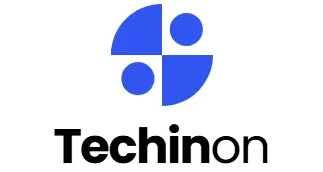Introduction
Alec Cabacungan and Kaleb-Wolf De Melo Torres have become recognizable faces through their appearances in commercials for Shriners Hospitals for Children. Their compelling stories and vibrant personalities have captured the hearts of millions. These commercials not only raise awareness for the hospital’s work but also often spark curiosity about whether Alec and Kaleb receive payment for their roles. This article delves into the financial aspects of their involvement in these commercials, shedding light on their compensation and broader impact, similar to how people often inquire about the financial details of notable figures like Sonny Vaccaro net worth.
Who Are Alec and Kaleb?
Alec Cabacungan and Kaleb-Wolf De Melo Torres are young spokespersons for Shriners Hospitals for Children. Both have become the faces of the hospital’s campaigns, sharing their personal journeys and promoting the hospital’s mission of providing specialized pediatric care. Alec, known for his charismatic presence, has osteogenesis imperfecta, while Kaleb, equally engaging, has brittle bone disease. Their stories resonate deeply, making them powerful advocates for children with similar conditions.
Alec and Kaleb’s Role in Shriners Commercials
Alec Cabacungan’s Journey
Alec Cabacungan, born with osteogenesis imperfecta, has been a patient at Shriners Hospitals since he was a child. His journey with the hospital has been marked by numerous surgeries and treatments, all aimed at improving his quality of life. Alec’s involvement in the commercials began as a way to share his story and inspire others. His eloquence and positive outlook have made him a central figure in the hospital’s advertising campaigns.
Kaleb-Wolf De Melo Torres’s Impact
Kaleb-Wolf De Melo Torres, like Alec, has osteogenesis imperfecta. His journey with Shriners Hospitals began at a young age, and he has undergone multiple treatments to manage his condition. Kaleb’s cheerful demeanor and heartfelt testimony have made him an invaluable asset to the hospital’s promotional efforts. His participation in the commercials serves not only to raise funds but also to offer hope to other children facing similar challenges.
Commercials’ Reach and Influence
The commercials featuring Alec and Kaleb are broadcasted widely, reaching millions of viewers across various platforms. These ads are designed to highlight the hospital’s life-changing work and encourage donations. The heartfelt narratives and genuine expressions of gratitude from Alec and Kaleb resonate with audiences, fostering a strong emotional connection that drives support for Shriners Hospitals.
Behind the Scenes
Creating these commercials involves a dedicated team of professionals, including directors, camera operators, and scriptwriters. Alec and Kaleb’s natural charisma and comfort in front of the camera make the filming process smooth and impactful. Their ability to convey their experiences authentically adds a layer of credibility and relatability that is crucial for the success of the campaigns.
Public Response and Support
The public response to Alec and Kaleb’s commercials has been overwhelmingly positive. Viewers are often moved by their stories and inspired to contribute to Shriners Hospitals. The commercials have also helped in building a strong community of supporters who actively engage with the hospital’s mission. Alec and Kaleb’s influence extends beyond the screen, fostering a sense of solidarity and compassion among viewers.
Do Alec and Kaleb Get Paid for Commercials?
Alec and Kaleb’s Compensation
Alec Cabacungan and Kaleb-Wolf De Melo Torres do receive payment for their appearances in Shriners Hospitals for Children commercials. While the exact figures are not publicly disclosed, it is understood that they are compensated for their work. As child actors and spokespersons, their payments are likely structured according to industry standards and union guidelines.
Industry Standards and SAG-AFTRA Guidelines
Both Alec and Kaleb are presumably classified under the Screen Actors Guild – American Federation of Television and Radio Artists (SAG-AFTRA) union guidelines. This classification ensures that they receive fair compensation for their work. According to these guidelines, child actors can earn between $500 to $1,000 per commercial, with additional residual payments if the commercials continue to air on multiple platforms.
Additional Earnings from Other Brands
Beyond their work with Shriners Hospitals, Alec and Kaleb have also been involved with other major brands such as Nike, Pepsi, and McDonald’s. Their appearances in these advertisements further contribute to their earnings. These engagements not only provide additional financial benefits but also enhance their visibility and marketability.
Social Media and Marketability
Alec and Kaleb’s influence extends to social media, where they have substantial followings. This presence allows them to engage with a broader audience and participate in various promotional activities. Their social media engagement adds another dimension to their marketability, enabling them to secure lucrative deals and collaborations.
Impact of Financial Compensation
While Alec and Kaleb’s primary motivation is to raise awareness and support for Shriners Hospitals, the financial compensation they receive is a testament to their influence and popularity. Their earnings reflect their significant contributions to the hospital’s campaigns and their role in inspiring others. This compensation also underscores the value of their work and the impact they have on public perception.
The Broader Impact of Alec and Kaleb’s Work
Raising Awareness
Alec and Kaleb’s participation in the commercials has significantly raised awareness about Shriners Hospitals for Children. Their personal stories highlight the hospital’s commitment to providing specialized care for children with complex medical needs. This increased visibility has helped attract donations and support from a broader audience.
Inspiring Donations
The emotional appeal of the commercials featuring Alec and Kaleb plays a crucial role in inspiring donations. Viewers are moved by their resilience and positive attitudes, prompting them to contribute to the hospital’s mission. This support is vital for sustaining the hospital’s operations and expanding its services.
Building a Community
Alec and Kaleb’s stories have fostered a sense of community among supporters of Shriners Hospitals. Their experiences resonate with many, creating a network of individuals who are passionate about the hospital’s work. This community engagement enhances the hospital’s ability to advocate for children with similar conditions and mobilize resources.
Advocacy for Medical Conditions
Through their involvement in the commercials, Alec and Kaleb have become advocates for children with osteogenesis imperfecta and other similar conditions. Their visibility has brought attention to these medical issues, encouraging more research and support for affected children and their families.
Long-Term Impact
The long-term impact of Alec and Kaleb’s work extends beyond immediate financial contributions. Their stories inspire hope and resilience, serving as a testament to the positive outcomes that specialized pediatric care can achieve. Their ongoing advocacy ensures that the mission of Shriners Hospitals continues to receive the attention and support it deserves.
Frequently Asked Questions
How much do Alec and Kaleb make from Shriners commercials?
The exact amount Alec and Kaleb earn from Shriners commercials is not publicly disclosed. However, as child actors under SAG-AFTRA guidelines, they likely earn between $500 to $1,000 per commercial, along with residual payments for continued use of the ads.
Are Alec and Kaleb compensated for their TV ads?
Yes, Alec and Kaleb are compensated for their appearances in TV ads. Their compensation aligns with industry standards and reflects their role as key figures in the hospital’s advertising campaigns.
What is the salary of Alec and Kaleb for Shriners commercials?
While the specific salary details are private, Alec and Kaleb’s earnings are believed to follow union guidelines for child actors, which stipulate specific pay rates and residual payments for commercials.
Do Alec and Kaleb earn money from their advertisements?
Yes, Alec and Kaleb earn money from their advertisements. Their compensation is structured according to industry standards and reflects their significant contributions to the promotional efforts of Shriners Hospitals.
How are Alec and Kaleb compensated for Shriners commercials?
Also Read: YTMP3 Convert [YouTube to MP3 Converter]
Conclusion
Alec Cabacungan and Kaleb-Wolf De Melo Torres have made significant contributions through their roles in Shriners Hospitals for Children commercials. Their compelling stories and genuine advocacy have raised awareness, inspired donations, and built a supportive community. While they do receive compensation for their work, their primary motivation remains the same: to support the hospital’s mission and inspire others. Their continued involvement ensures that the hospital’s life-changing work will reach even more people, making a lasting impact on countless lives.
Iva Ort is an ingenious wordsmith and captivating blogger whose tales leap off the screen and into your imagination. With a pen as her wand, she weaves enchanting stories and insightful articles, leaving readers spellbound and craving more.

